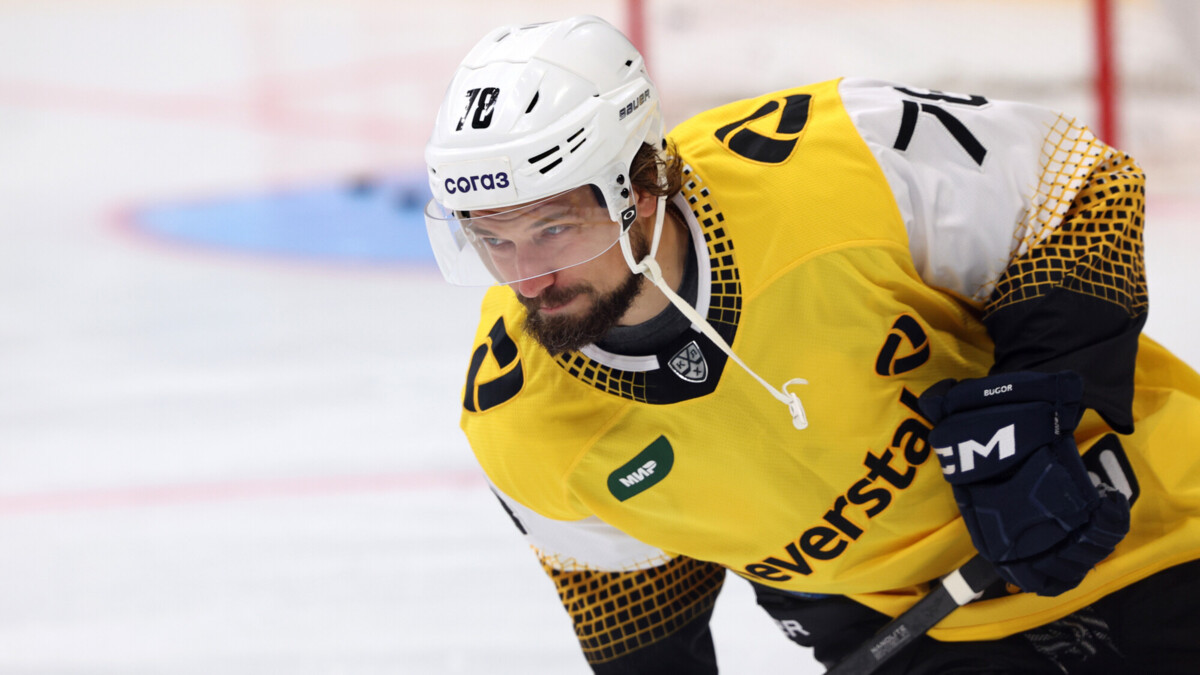An overview of the most significant events from the past week in the Kontinental Hockey League.
Season Awards and Honors
Moscow hosted the official season-closing ceremony, where Salavat Yulaev forward Joshua Leivo emerged as one of the main stars. In addition to winning statistical awards as the league`s best scorer and top goalscorer, he was also presented with the Golden Stick as the regular season`s Most Valuable Player and the Golden Helmet as a member of the All-Star Team.
Joining Leivo on the symbolic All-Star Team were Vladislav Podyapolsky (Dynamo Moscow), Alexander Nikishin (SKA), Damir Sharipzyanov (Avangard), Alexander Radulov (Lokomotiv), and Maxim Shabanov (Traktor). This marks only the second time in KHL history that the symbolic All-Star Team has comprised players from six different clubs. The first instance occurred in 2018, featuring Pavel Frantsouz (Traktor), Bogdan Kiselevich (CSKA), Nikita Tryamkin (Avtomobilist), Justin Azevedo (Ak Bars), Nikita Gusev (SKA), and Dmitry Kagarlitsky (Severstal).
Goaltending Excellence
While statistical prize winners were announced in advance, the victors in four categories were determined by voting. The most intense competition was for the best goaltender award: Daniil Isaev received 36 points, while Vladislav Podyapolsky garnered 35. Just one point secured Isaev his second consecutive title, a feat only achieved once before in league history by Alexander Eremenko (in 2012 and 2013).
Beyond Isaev and Podyapolsky, head coaches cast votes for 12 other goaltenders, accumulating a total of 67 points. 25 of these points went to Nikita Serebryakov, who finished third.
Top Rookie and MVP Voting
Fifteen players were nominated for the best rookie award, but the primary competition was between Ivan Demidov (50 points) and Yegor Surin (37). Semyon Vyazovoy, who placed third, received only seven points, with the remaining nominees earning even fewer.
In the Golden Stick nomination, Leivo faced virtually no competition. Joshua earned 39 points, whereas the next three players—Maxim Shabanov, Artem Galimov, and Alexander Nikishin—combined for 37 points (18, 10, and 9 respectively). Another 26 players collectively gathered 56 points.
Coach of the Year
The award for best coach presented the least amount of intrigue. Igor Nikitin received an overwhelming 57 points, nearly four times more than his closest competitor. However, the race for second, third, and fourth place was extremely tight, separated by just a single point each: Benoit Groulx had 17, Viktor Kozlov 16, and Alexey Kudashov 15. Seven other coaches garnered points ranging from 13 down to one.
Coaching Carousel
By the end of May, nine out of the league`s 23 teams were without a head coach under a current contract. This number decreased to seven before the opening of the transfer market. “Torpedo” appointed Alexey Isakov as their new head coach, while “Lada” hired Boris Mironov.
Isakov will make his KHL head coaching debut, though he is well-known in Nizhny Novgorod; he previously led “Chaika” to MHL bronze and “Torpedo-Gorky” to VHL gold. Alexey Gennadyevich has also worked with CSK VVS, Kristall Saratov, Zauralie, Yermak, and Rubin.
Mironov joins Lada from Traktor, where he was part of Groulx`s “silver medal” coaching staff. His previous roles include assistant and head coach positions with Krasnaya Armiya (MHL), Zvezda (VHL), assistant with Neftekhimik (KHL), and head coach with Spartak (KHL), where he coached 82 games, winning 38.
As of Monday morning, seven teams—Vityaz, Kunlun, Neftekhimik, Sibir, Spartak, Sochi, and CSKA—still lack head coaches. New appointments, including some potentially high-profile ones, are expected in the very near future (along with possible departures from other teams).
Free Agency Begins
Coach changes this year might overshadow player transfers in terms of excitement, at least at the very start of the transfer market. Its opening day fell on Sunday and passed remarkably quietly. Only Spartak showed notable activity by re-signing a group of their own players under new terms. The two teams with new coaches also made early moves: Togliatti-based Lada acquired 22-year-old defenseman Igor Safonov from Yuzhny Ural, who has yet to play in the KHL. Meanwhile, Nizhny Novgorod`s Torpedo signed 33-year-old forward Alexey Kruchinin to a two-year contract. Kruchinin spent the most successful part of his career with Torpedo and played for Severstal last season (10+17 in 58 games).
Season Structure and Rule Changes
Traditionally, a meeting of club leaders precedes the season-closing ceremony. Such meetings usually don`t involve revolutionary changes; their main purpose is to summarize the past season and outline the framework for the next. The structure of the upcoming championship will be fully preserved: 23 teams, with each playing 68 regular season games. Playoff dates have been slightly adjusted—the postseason begins on March 23 (compared to March 26 this year), and the final series starts on May 11 (vs. May 13 this year). The trade deadline has been moved significantly from December 27 to January 25.
Two significant amendments regarding Unrestricted Free Agents (UFA) were adopted: Firstly, players who attain UFA status upon the expiration of their current contract will no longer be subject to the “three transfers rule.” Secondly, the age at which goaltenders acquire UFA status has been lowered to 28, provided they have played at least 200 games in the KHL.

